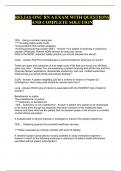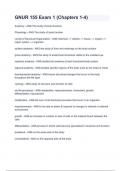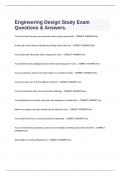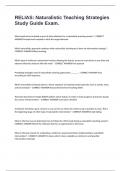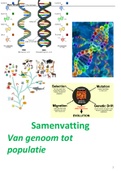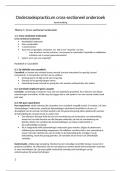2.1) Explain that a scalar quantity has magnitude (size) but no specific direction
A scalar quantity has magnitude but no specific direction
o Examples of a scalar quantities include
o Distance
o Speed
o Energy
2.2) Explain that a vector quantity has both magnitude (size) and a specific direction
A vector quantity has magnitude and a specific direction
o Examples of vector quantities include
o Displacement
o Velocity
o Acceleration Force
o Force
o Force is a vector quantity as direction is shown by the arrowhead and magnitude is displayed
by the length of the arrow
o The cars in the diagram have the same speed (scalar value) – 10m/s
o But have different velocities (vector value) – as they are travelling in the same direction
10m/s 10m/s
2.3) Explain the difference between vector and scalar quantities
o Scalar = distance : 200km
Vector = displacement : 200km North
o An example of this is velocity (vector quantity) and speed (scalar quantity)
o Velocity (definition) – Speed in a given direction
, TOPIC 2- MOTION AND FORCES
2.4) Recall vector and scalar quantities, including:
displacement/distance, velocity/speed, acceleration, force, weight/mass, momentum, energy
SCALAR VECTOR
Distance Displacement
Speed Velocity
Acceleration
Force
Mass Weight
Momentum
Energy
2.5) Recall that velocity is speed in a stated direction
o Is a vector quantity
o Has both direction and magnitude
2.6) Recall and use the equations:
a) (average) speed (metre per second, m/s) = distance (metre, m) ÷ time (s)
b) distance travelled (metre, m) = average speed (metre per second, m/s) × time (s)
o Speed = distance moved by an object each second
o Speed = m/s
o Distance = m
o Time = s
o Formulas can be rearranged to work out different values
Speed = Distance / Time Distance = Speed x Time
, TOPIC 2- MOTION AND FORCES
2.7) Analyse distance/time graphs including determination of speed from the gradient
o Distance time graphs display how the distance of an object varies over time
o Straight line = object is travelling at a constant speed
o Flat line = object is stationary
o Gradient of the line is increasing = object is accelerating
o Gradient of the line is decreasing = object is decelerating
o Positive gradient = traveling forward
o Negative gradient = traveling backward
o Speed is equal to the gradient of the graph
Constant speed Accelerating speed Stationary
object
2.8) Recall and use the equation:
acceleration (metre per second squared, m/s2 ) = change in velocity (metre per second, m/s) ÷ time
taken (second, s), a=(v-u)/t
o Acceleration = the rate of change of velocity
o Change in velocity every second
Acceleration = change in velocity / time o a = Acceleration - m/s2
o v = Final velocity - m/s
a = (v-u) / t o u = Initial velocity - m/s
o t = Time – s

